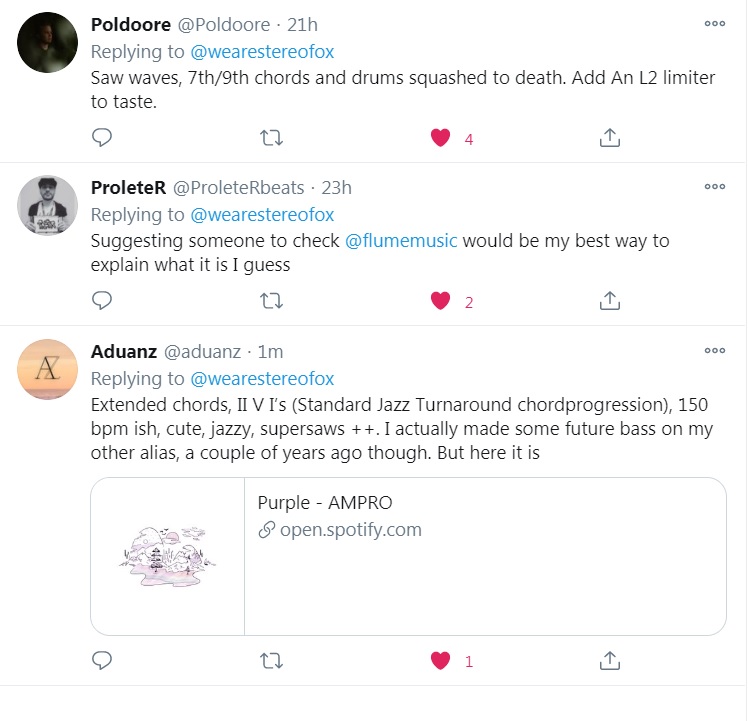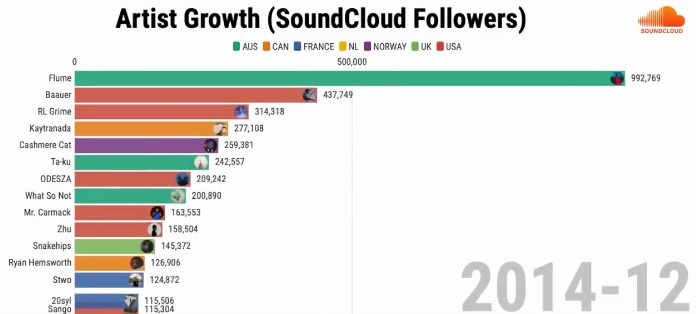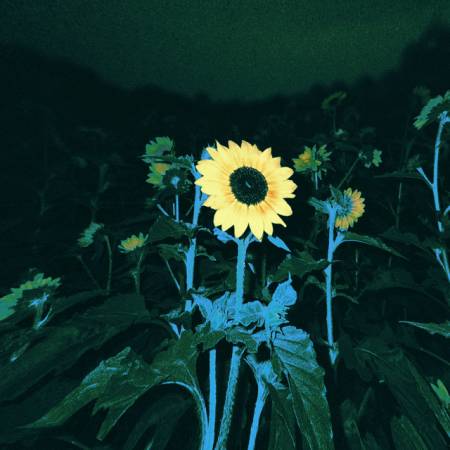I must admit I had a hard time starting this article as future bass is a relatively unknown genre to me. That's why I turned to Twitter and a few friends gave me spot-on answers that I will use as an intro to my article.
Poldoore, Aduanz and ProleteR shared their thoughts on what future bass is. I asked to be explained to like I'm 5.

Flume. That must be easy - been a fan of Harley since early 2012 (before Stereofox was a thing) as I have been an avid fan of Tripple J Unearthed and Future Classic (his first label) for ages. While I always knew he was considered to a wild extend the Godfather of future bass it never really crossed my mind to dig deeper into what this actually means.
Besides Flume, there's one more artist I want to mention at the beginning of this article and that's Mura Masa. "Lotus Eater" from his 2015 album Soundtrack To A Death is my personal highmark when it comes to "that bassy genre" (that's how I used to classify future bass back in the days).
Future Bass Genre
Future bass is a genre in the electronic dance music realm and the term has been thrown around since the 2010s. That matches the Flume timeline, for sure.
Stay up to date.
New music and exclusive updates in your inbox weekly.
If I have to explain the genre with my own words, then I would classify it as taking the bass charge and drops of dubstep and fusing them with the ecstatic and positive feel people who don't like pop music still get while listening to pop music. Add to this a tiny bit of trap's harshness and you've got future bass.
Here's one of my favourite Skin (2016) tracks. That record won a Grammy for Best Dance/Electronic Album, by the way. I am sure most people didn't care much about the name of the genre, but here I am writing this article.
Future Bass History
Now is the time to give major shoutout to Alex from futurebassdata.
This tweet provides a very insightful and quick overview of future bass, EDM, and trap artists' growth development in the period of 2012 to 2019 (data is taken from SoundCloud).

As mentioned before, we can't talk about future bass origins and history and leave dubstep and trap out of the discussion. Before the first Flume release, many people credit FlyLo's 1983 (2006) and Nosaj Thing's Chung (2006) as kickstarters of the wonky / wobbly production style. This, blended with the trap-like syncopation techniques eventually leads to future bass' first "real" days. The days of Flume, ODESZA's Summer's Gone and Cashmere Cat's Mirror Maru (2012).
Fast-forward to 2015-16, I feel that as future bass music was becoming more and more mainstream, the amount of vocal-driven tracks drastically increased. You can often see prominent pop and hip hop artists being featured on the songs released by future bass producers, which I personally consider one of the main reasons for the genre's ultimate success.
Why the name Future Bass?
I actually have no idea. All the future genres like beats, house, trap, funk feel like basically taking the original genre and using out-of-the-box and unconventional production technique in order to push the genre borders further. Oh yeah, and I feel there's a decent amount of bass in all of them regardless of the name.
Future Bass BPM and Specifics
Now that's a question that seems to be asked a lot. While not a strict rule, the BPM one could expect from a future bass genre is anywhere between 130 to 160 BPM with typical song part length of 4 bars.
Some of the other basics worth mentioning are the fact that the sound is predominantly in the major scale as future bass tends to be much happier than other related genres like trap for example. The bass which is essential when it comes to music from that genre is mostly designed by using two layers - a sub-bass and something that people refer to as a "higher" bass (which tends to sound harsher).
One other thing, which as a non-producer I will explain relatively shortly and vaguely, but... I find the sound of future bass quite wobbly. It's cool and I love it, but I have no idea how they create this effect.
Future Bass Artists
Most of the names in this section have already been mentioned in so far, but still - the genre pioneers people always mention are...
- RL Grime
- Hudson Mohawke
- Flume
- Lido
- Cashmere Cat
...with Mura Masa, Marshmello, San Holo and Louis The Child being sort of a "second wave" power troops as they blew up in the 2015-16 period.
Kawaii Future Bass
I have to say before starting this article I knew nothing about Kawaii future bass, but it always popped in my related searches, so - why not figure this out together?
Taking a step back, Kawaii refers to the culture of cuteness in Japan. All the Hello Kitty kinda thing going on. The Kawaii future bass covers the highly influenced by Japanese pop culture section of the genre where the happy-go-lucky vibe is... prominent to say the least.
As you can hear from the example before, there's quite the cuteness overload in those compositions. Deeply rooted in the anime and video game culture, those tracks are essentially a chiptune-driven future bass sprinkled with a lot (and I mean a lot) of cute anime voices and aesthetics.
Future Bass Playlists
While relatively inactive, I can't miss sharing Sushibomber' Future Bass / Chill Trap on Spotify that clocks almost 50k followers at the time of this writing. A source of inspiration for us.
Our Bass Waves playlist does cover part of the genre, but we're not that active with it... yet.







